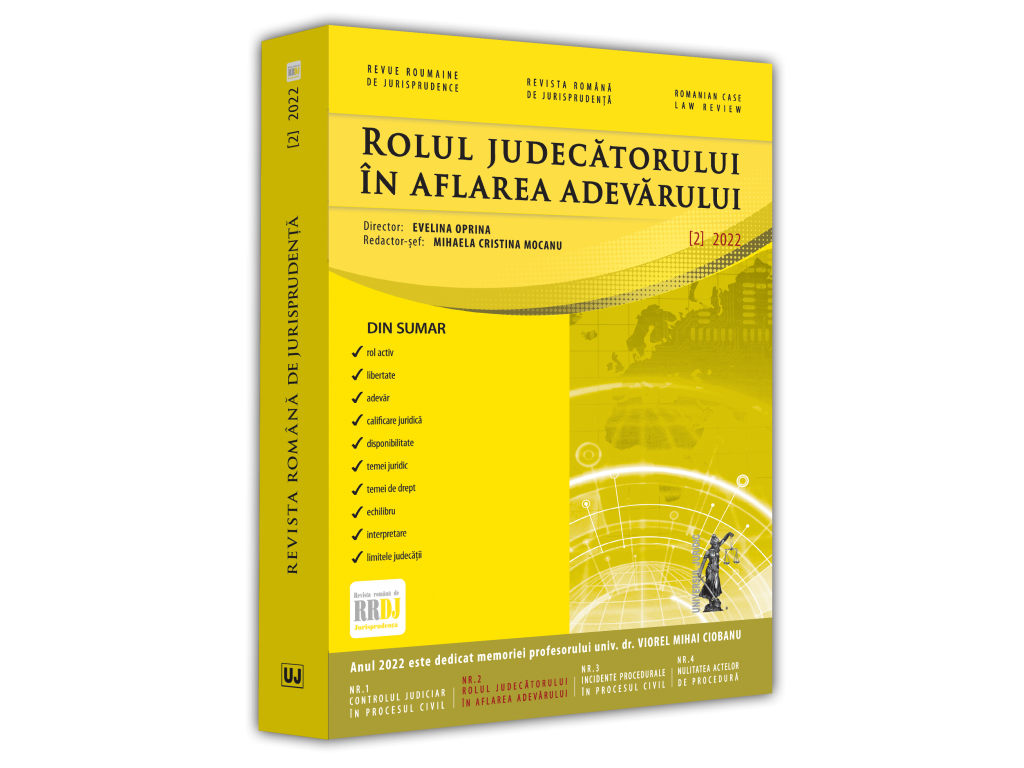Distinction in terms of effects between lack of legal capacity, a state of law which presumes lack of discernment, and lack of discernment, a state of fact as a defect of consent to the conclusion of a legal act.
JURISPRUDENȚĂ COMENTATĂ ȘI ADNOTATĂ
Abstract
Discernment is a state of fact, while capacity to act is a state of law, and the two institutions are not equal in terms of the effects that their absence has on the conclusion of legal acts.
Thus, the lack of discernment of the party at the conclusion of a contract, which has been proven in this case, is a defect of consent which renders the contract voidable under Article 1.205 Civil Code. Unlike discernment as a state of fact, which vitiates consent, capacity to act is a state of law which must exist a priori at the conclusion of the legal act and represents another condition of validity necessary for the conclusion of the legal act distinct from consent. The provisions of Article 43 of the Civil Code cannot be extended by analogy to other situations regulated separately by law, such as the situation of vitiation of consent for lack of discernment.
Essential for the application and interpretation of Art. 43 and Art. 1.647 para. (1) of the Civil Code is that they apply to situations expressly and restrictively provided for by law, when the capacity to act of the contracting party is lacking as a state of law and cannot be applied by analogy to situations of lack of discernment as a state of fact, the latter situation being governed by separate legal rules governing the vitiation of consent.
2. The absence of a statement of reasons by the court of appeal, in accordance with the requirements of Article 425(b) of the Civil Procedure Code, with the application of Article 6 of the ECHR, constitutes a ground for reversal of public policy which may also be raised by the court of its own motion. Viewed in the light of the legal requirements set out above, the appellant's judgment does not contain the reasoning of the Court of Appeal which, on the one hand, failed to establish its own facts in relation to the essential evidence adduced in the case and, on the other hand, failed to respond to the essential arguments put forward by the appellant.








